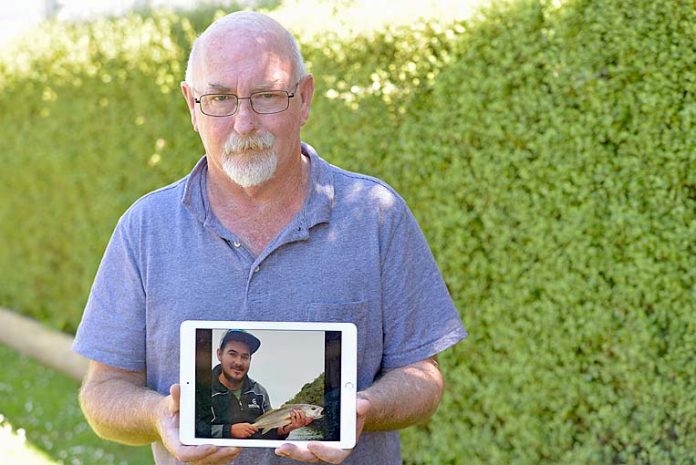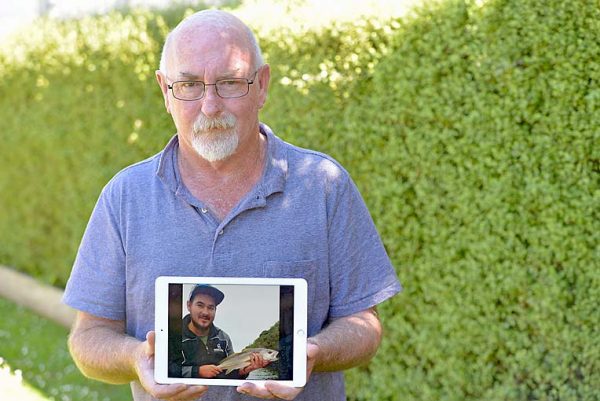

THE father of Steven Whitehead – who was one of four forestry workers killed in a crash at Penola in November 2016 – has expressed his disappointment with the alleged lack of changes to safety practices within the forestry industry.
More than two years after the accident, which devastated his family, Greg Whitehead has spoken out for the first time.
Responding to claims made by two whistleblowers from within the industry that safety was being compromised to deliver maximum production, he has shared his own knowledge of Steven’s time in the workforce.
“There were things that bothered me, the main one was the hours that he worked for both day and night shifts,” Mr Whitehead said.
“(Steven) found it hard to develop proper sleep patterns, which by the end of the week would catch up with him.”
Addressing claims from the whistleblowers they were sometimes working over 12 hours, Mr Whitehead said he had heard similar stories.
“The hours worked is an issue and in recent times I have heard reports the home to home time of the recommended 12 hours is being breached,” he said.
Mr Whitehead said Steven had also told him his work colleagues did not take their breaks to eat.
“That was the other thing that Steven told me that bothered me – somehow they were driving their machines and eating on the run,” Mr Whitehead said.
“Even though management might say ‘yes have a break and go for a 10 minute walk to stretch your legs’, is this really what happens?”
Mr Whitehead said tiredness from working long hours was compounded by activities undertaken outside work hours.
However, he believed its was important for young men and women to have a work-life balance.
“Young fellas that are in the situation of having a girlfriend or young wife still need to give them time and to have social interactions,” he said.
“They also have hobbies such as fishing or sport and it is only natural for these guys to think they can manage all of this and get away with three or four hours sleep.
“Some companies in the industry might think the boys should work and then go home to bed, but I’m sorry, it’s not human nature and should not be expected.”
Mr Whitehead also raised questions about the capacity for companies within the industry to look after their workers.
“Are the stakeholders and the contractors too reliant on each other to be the watchdogs for issues the employees on the ground might have?” Mr Whitehead said.
Concerned about forestry workers not having their voices heard by their employer, Mr Whitehead expressed a hope for change.
“There should be an independent body where these workers can air their grievances if they are not being listened to by management,” Mr Whitehead said.
“Access to these workers should not be restricted.”
Construction Forestry Mining and Energy Union South East secretary Brad Coates said it was extremely difficult for the union to gain access to most workers within the industry.
“There is no doubt the sector is quite unregulated when it comes to safety and we are the only body around who has the capabilities to look after these people,” Mr Coates said.
“The problem is 80pc of the industry are not in the union because if they do join, they are threatened with their jobs by their employer.
“It contradicts the Attorney-General’s right to freedom of assembly and association laws.”
Despite being frustrated with the lack of access, Mr Coates was quick to highlight there were a number of companies doing the right thing.
“There are some that we have a great relationship with and they have nothing to be afraid of because they are acting appropriately,” Mr Coates said.
“It’s the ones that are taking advantage of these young and vulnerable employees that raise concerns.”
While an independent body has been unable to have an impact on the culture of the industry, Mr Whitehead challenged businesses to enact change themselves.
“For businesses who are not doing the right thing by their workers, I would like to challenge them to fix the issues in regards to hours worked and breaks not being taken,” he said.
He also highlighted the fact Steven and his three colleagues were travelling to work for their sixth straight shift when the fatal crash occurred.
“I would also like to ask them, is a sixth day of work really necessary considering the long hours already undertaken during the previous week?” he said.







